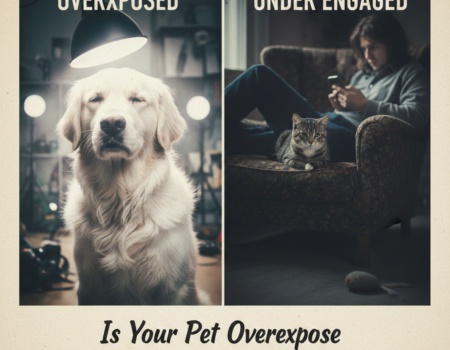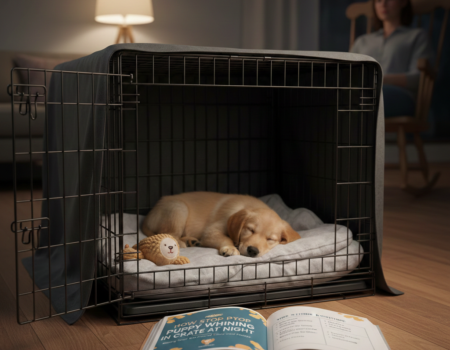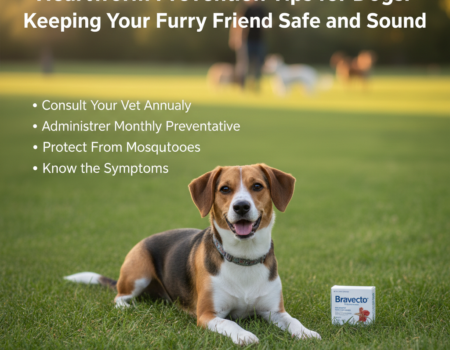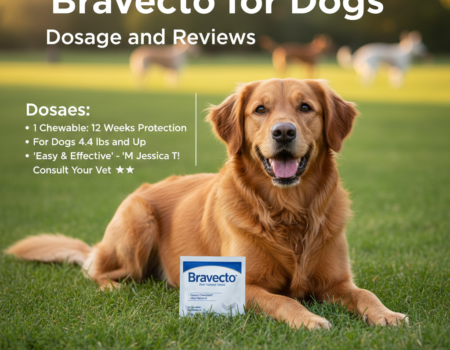Did you know that popcorn is one of the most popular snack foods in the world? It’s a delicious and satisfying treat enjoyed by millions of people. But what about our furry friends? Can dogs indulge in this crunchy delight too? In this article, we will explore whether dogs can eat popcorn and provide you with safe snacking tips to keep your four-legged companion healthy and happy. Let’s dig in!
Key Takeaways:
- Popcorn itself is not harmful to dogs, but certain toppings and additives can be toxic and cause health issues.
- Plain, air-popped popcorn can be a safe occasional treat for dogs, but moderation is key.
- It’s important to remove unpopped or partially popped kernels to prevent choking hazards.
- Consider your dog’s specific dietary needs, allergies, and size before feeding them popcorn.
- A balanced and nutritious diet should always be the priority for your furry friend.
The Nutritional Value of Popcorn for Dogs
When it comes to snacking, popcorn is a popular choice among humans. But what about dogs? Can they enjoy this crunchy treat too? Let’s explore the nutritional value of popcorn for our furry friends.
Popped corn kernels actually contain some beneficial nutrients for dogs. They are a good source of minerals like magnesium, manganese, phosphorous, and zinc. These minerals play important roles in maintaining overall health and supporting various bodily functions in dogs.
Popcorn also contains fiber, which can help promote a healthy digestive system for dogs. Additionally, there are trace amounts of vitamins in popcorn, although they are not significant compared to a dog’s regular diet.
However, it’s important to note that the nutritional value of popcorn is not substantial enough to replace a balanced dog food. Popcorn should be given in moderation and as an occasional treat rather than a staple in your dog’s diet. Remember, their regular food should always be the main source of nutrition.
So, can dogs eat popcorn? Yes, but it should not be the sole source of nutrition for dogs. Treat popcorn as an extra special snack and be mindful of the quantity you offer to your furry friend.
“Popped corn kernels contain minerals, fiber, and trace amounts of vitamins, making them a snack with some nutritional benefits for dogs. However, popcorn should not replace a balanced dog food.”
It’s important to remember that not all popcorn is safe for dogs. Buttered popcorn, flavored varieties, and popcorn with toppings like salt or seasonings can be harmful to dogs’ health. So, when sharing popcorn with your furry friend, make sure it’s plain, air-popped popcorn without any added ingredients or seasonings.
Furthermore, it’s essential to consider the size of your dog when providing them with popcorn. Smaller breeds may be more susceptible to choking on popcorn kernels, so it’s important to supervise them while they enjoy this treat.
In conclusion, popcorn can be a safe and enjoyable snack for dogs, but it should be given in moderation and as part of a balanced diet. Remember to always consult with your veterinarian before introducing any new foods to your dog’s diet, including popcorn.
Popcorn Safety for Dogs
When it comes to popcorn, it’s essential to ensure the safety of our furry friends. While plain, air-popped popcorn can be a safe treat for dogs, there are some important considerations to keep in mind.
First and foremost, it’s crucial to avoid buttered popcorn or popcorn with added toppings like salt or seasoning. These additions can be harmful to dogs, causing digestive issues and contributing to obesity. It’s best to stick to plain, air-popped popcorn without any additional ingredients.
Another critical aspect of popcorn safety for dogs is removing unpopped or partially popped kernels. These kernels can present a serious choking hazard, especially for small dogs. Be sure to sift through the popcorn and discard any kernels that may be left behind.
Furthermore, it’s important to remember that popcorn should only make up a small portion of a dog’s daily caloric intake. While popcorn can be a tasty treat, it should not replace a balanced diet or become a significant part of their meal plan.
The Benefits of Safe Popcorn for Dogs
While precautions must be taken, safe popcorn can have some benefits for dogs. Popcorn is a source of minerals like magnesium, manganese, phosphorous, and zinc, which can contribute to their overall health. Additionally, popcorn contains fiber, which can aid in digestion.
However, it’s important to note that the nutritional value of popcorn is not significant compared to a dog’s regular diet. Therefore, popcorn should be enjoyed in moderation and not as a substitute for a well-balanced dog food.
Safe Popcorn for Dogs – Feeding Guidelines
When it comes to feeding popcorn to dogs, it’s crucial to follow appropriate guidelines. Treats, including popcorn, should make up no more than 10% of a dog’s daily caloric intake. This ensures that their diet remains balanced and meets their nutritional needs.
As with any new food, it’s recommended to consult with a veterinarian before introducing popcorn to your dog’s diet. They can provide guidance based on your dog’s specific dietary requirements and any potential allergies or sensitivities.
Alternatives to Popcorn as Dog Treats
If you’re looking for alternative treats for your pup, there are plenty of safe options available. These include carrot sticks, green beans, apple slices (without seeds), and, of course, plain, air-popped popcorn. These alternatives provide a crunchy texture and can be satisfying snacks for dogs without the potential risks associated with popcorn toppings.
| Treat | Description |
|---|---|
| Carrot Sticks | A healthy and low-calorie snack for dogs, carrots are packed with vitamins. |
| Green Beans | Another low-calorie option, green beans can provide crunch and fiber for dogs. |
| Apple Slices (without seeds) | Apples offer a sweet and refreshing treat for dogs, but make sure to remove the seeds, as they can be toxic. |
| Plain, Air-Popped Popcorn | A safe alternative to flavored popcorn, plain, air-popped popcorn can be enjoyed in moderation by dogs. |
In conclusion, while plain, air-popped popcorn can be a safe occasional treat for dogs, it’s important to prioritize their safety and nutritional needs. By following guidelines, removing kernels, and exploring alternative treats, we can ensure that our furry friends enjoy their snacks without any risks or adverse effects.
Factors to Consider When Feeding Dogs Popcorn
When it comes to feeding dogs popcorn, there are several important factors to consider to ensure their safety and well-being. Every dog has unique dietary needs and potential food allergies or sensitivities that must be taken into account. Additionally, certain breeds may be more prone to choking hazards, necessitating extra precautions. Let’s delve into these factors in more detail.
Specific Dietary Needs
Just like humans, dogs have specific dietary needs that vary depending on their age, size, breed, and overall health. While popcorn can be a relatively safe and enjoyable treat for dogs, it should never replace a balanced and nutritious diet specifically formulated for their well-being. Popcorn lacks essential nutrients that are crucial for a dog’s overall health, so it’s important to offer it in moderation.
Food Allergies and Sensitivities
Food allergies and sensitivities are common in dogs, and corn is one of the most prevalent allergens. If you suspect that your dog has a sensitivity to corn or experiences adverse reactions after consuming corn-based products, including popcorn, it’s best to refrain from feeding them these foods. Instead, opt for alternative treats that are safe and appropriate for your dog’s specific dietary needs.
Choking Hazards
When it comes to popcorn, one of the primary concerns is the potential for choking, particularly for smaller dog breeds. While plain, air-popped popcorn is generally less likely to cause choking, there is still a risk of dogs inhaling or choking on popcorn kernels. It’s crucial to supervise your dog while they’re enjoying popcorn and make sure to remove any unpopped or partially popped kernels that can pose a choking hazard.
| Factors to Consider | Importance |
|---|---|
| Specific Dietary Needs | Crucial for overall health |
| Food Allergies and Sensitivities | Avoid potential allergic reactions |
| Choking Hazards | Prevent choking incidents |
Feeding Guidelines for Popcorn
When it comes to feeding popcorn to dogs, it’s important to follow some guidelines to ensure their health and well-being. Treats, including popcorn, should make up no more than 10% of a dog’s daily caloric intake. This applies to both commercial treats and homemade treats. By limiting the amount of popcorn given to your furry friend, you can maintain a balanced diet that meets their specific nutritional needs.
As with any new food, it’s always a good idea to consult with a veterinarian before introducing popcorn or any other treats into your dog’s diet. They can provide valuable insight and advice based on your dog’s individual needs, considering factors such as breed, size, age, and any existing health conditions.
Remember, moderation is key. While popcorn can be a tasty and enjoyable snack for dogs, it should not be overindulged. We must prioritize their overall nutrition, ensuring that they receive a complete and balanced diet. Treats, including popcorn, should only complement their regular meals and not comprise a significant portion of their caloric intake.
Now, let’s take a look at a table summarizing the key feeding guidelines for popcorn:
| Treat Type | Portion Size | Frequency |
|---|---|---|
| Plain, air-popped popcorn | Small pieces, no more than a handful | Occasional treat |
As you can see in the table, plain, air-popped popcorn can be given to dogs as an occasional treat. Remember to break it into small, manageable pieces to prevent any choking hazards and to remove any unpopped or partially popped kernels. Always supervise your pet while they are enjoying their popcorn to ensure their safety.
While popcorn can be a delightful snack option for dogs, there are also other alternatives available that can provide similar crunchy textures. Carrot sticks, green beans, and apple slices (without seeds) are all safe and healthy options to consider as dog treats.
By following these feeding guidelines and prioritizing your dog’s health and nutrition, you can safely include popcorn or other treats in their diet, keeping them happy and satisfied.
Alternatives for Popcorn as Dog Treats
If you’re looking for alternative treats for your dog, there are plenty of options available. Instead of feeding your furry friend popcorn, consider these safe and healthy alternatives:
- Carrot sticks: Crunchy and low in calories, carrots are a great option for dogs. They are rich in vitamins and minerals that support overall health.
- Green beans: Dogs love the crunch of green beans, and they are packed with fiber and nutrients. Just make sure they are plain and not seasoned with any harmful ingredients.
- Apple slices (without seeds): Apples are a sweet and refreshing treat for dogs. Be sure to remove the seeds, as they contain small amounts of cyanide, which can be harmful to dogs.
- Plain, air-popped popcorn: If you still want to give your dog a popcorn-like experience, opt for plain, air-popped popcorn without any butter, oil, salt, or other toppings.
These alternatives provide a crunchy texture that dogs love while eliminating the potential risks associated with popcorn toppings. Remember to introduce any new treats gradually and in moderation, and always consider your dog’s specific dietary needs and any allergies they may have.
| Alternatives | Nutritional Benefits |
|---|---|
| Carrot sticks | Rich in vitamins and minerals |
| Green beans | High in fiber and nutrients |
| Apple slices (without seeds) | Refreshing and a good source of fiber |
| Plain, air-popped popcorn | Low in calories |
Potential Risks of Feeding Dogs Popcorn
While enjoying some plain, air-popped popcorn with your furry friend can be a fun treat, it’s important to be aware of certain risks associated with feeding dogs popcorn.
First and foremost, it’s crucial to remember that the toppings commonly found on popcorn can pose potential health problems for dogs. Butter, oils, salt, and seasonings can all contribute to digestive issues and weight gain in our canine companions. These additives may cause upset stomachs or even lead to more serious conditions like pancreatitis.
Beyond the toppings, there’s an often overlooked risk: choking. Dogs can easily choke on unpopped or partially popped kernels, which can become lodged in their throat or cause blockages in their digestive system. This risk is especially high for small breeds, so it’s crucial to supervise your dog closely while they’re indulging in popcorn.
To ensure the safety of our four-legged friends, it’s best to stick to plain, air-popped popcorn as an occasional treat. By eliminating the toppings and being mindful of potential hazards, we can minimize the risks associated with feeding dogs popcorn.
“Feeding dogs popcorn with butter, oils, salt, or seasonings can contribute to digestive issues and weight gain.”
– Veterinary Nutritionist, Dr. Sarah Thompson
To illustrate the risks of feeding dogs popcorn, here’s a table outlining the potential dangers and precautions:
| Risks | Precautions |
|---|---|
| Additives like butter, oils, salt, and seasonings | Stick to plain, air-popped popcorn without these toppings |
| Potential choking hazard | Supervise dogs closely while they’re eating popcorn |
To sum it up, while plain, air-popped popcorn can be a safe occasional treat for dogs, we need to be mindful of the potential risks associated with popcorn toppings and the risk of choking. By exercising caution and making informed choices, we can ensure that our furry friends enjoy their popcorn moments without compromising their health.
Other Human Foods to Avoid Feeding Dogs
While popcorn may not be suitable for dogs, it’s important to be aware of other human foods that can pose risks to our furry friends. Feeding dogs certain foods can lead to various health issues and potentially be toxic to their system. Here are some foods to avoid giving to your dog:
- Chocolate: Chocolate contains theobromine, which is toxic to dogs and can lead to symptoms such as vomiting, diarrhea, rapid breathing, and even seizures. Dark chocolate and baking chocolate are particularly dangerous.
- Grapes: Grapes and raisins can cause kidney failure in dogs. Even small amounts can be toxic and lead to symptoms like vomiting, diarrhea, and lethargy.
- Onions and Garlic: Onions and garlic contain compounds that can damage a dog’s red blood cells, leading to anemia. Symptoms may include weakness, vomiting, and difficulty breathing.
- Avocado: Avocado contains persin, which can cause vomiting and diarrhea in dogs. The pit is also a choking hazard, and large amounts of avocado can lead to pancreatitis.
- Foods High in Sugar, Caffeine, or Alcohol: These substances can be toxic to dogs and may lead to symptoms such as rapid heart rate, tremors, seizures, and even death. It’s best to keep these foods and beverages away from your furry friend.
It’s crucial to do thorough research and stay informed about foods that can be harmful to dogs. Consulting with a veterinarian is always recommended before introducing any new human foods into your dog’s diet. Remember, our furry friends have different dietary needs and metabolisms than we do, and some foods that are safe for us may be dangerous for them.
Human Foods to Avoid Feeding Dogs
| Foods to Avoid | Risks to Dogs |
|---|---|
| Chocolate | Toxicity, including symptoms of vomiting, diarrhea, rapid breathing, and seizures |
| Grapes | Kidney failure, symptoms of vomiting, diarrhea, and lethargy |
| Onions and Garlic | Anemia, symptoms of weakness, vomiting, and difficulty breathing |
| Avocado | Vomiting, diarrhea, choking hazard, potential pancreatitis |
| Foods High in Sugar, Caffeine, or Alcohol | Toxicity, symptoms of rapid heart rate, tremors, seizures, and potential fatality |
The Importance of a Balanced Dog Diet
While occasional treats like popcorn can be enjoyed by dogs, it’s crucial to prioritize a balanced and nutritious diet for our furry friends. A complete and balanced dog food that meets their specific nutritional needs is essential for their overall health and well-being. Treats, including popcorn, should only complement their regular diet and not make up a significant portion of their daily caloric intake.
A healthy dog diet should consist of high-quality protein sources, carbohydrates, and fats, along with a proper balance of vitamins and minerals. This ensures that dogs receive the necessary nutrients to support their physical and mental well-being.
When it comes to dog food, there are various options available, including dry kibble, wet food, and raw diets. It’s important to choose a dog food that suits your dog’s age, breed, size, and any specific dietary requirements or health concerns they may have.
Consulting with a veterinarian can provide valuable insight into determining the most suitable diet for your dog, as they can assess their individual needs and make appropriate recommendations. They may suggest specific brands or formulas that align with your dog’s nutritional requirements.
In addition to a balanced diet, regular exercise is another vital component of maintaining a healthy lifestyle for your dog. Daily physical activity helps to manage their weight, promotes cardiovascular health, strengthens their muscles and joints, and stimulates their mental well-being.
Furthermore, it’s important to remember that a balanced dog diet goes beyond just nutrition. Providing fresh and clean water at all times, and ensuring your dog has access to a safe and comfortable feeding area, contributes to their overall well-being.
“A balanced and nutritious diet forms the foundation of a healthy and happy life for our canine companions.”
The Benefits of a Balanced Diet for Dogs
Feeding dogs a balanced diet offers a wide range of benefits, including:
- Improved digestion and nutrient absorption
- Maintained weight within a healthy range
- Enhanced immune system function
- Healthy skin and coat
- Increased energy levels
- Reduced risk of chronic diseases
- Promoted dental health
By prioritizing a balanced dog diet and providing them with the necessary nutrients, we can help our canine companions live long, happy, and healthy lives.
| Nutrient | Popcorn (100g) | Typical Dog Food (100g) |
|---|---|---|
| Protein | 13g | 20g |
| Fat | 4.5g | 10g |
| Carbohydrates | 74g | 50g |
| Fiber | 14g | 4g |
| Calcium | 10mg | 200mg |
| Phosphorus | 330mg | 150mg |
| Potassium | 300mg | 600mg |
| Vitamin A | 0 IU | 5,000 IU |
| Vitamin C | 0mg | 50mg |
Conclusion
After careful consideration, we conclude that plain, air-popped popcorn can indeed be a safe occasional treat for dogs. It provides minerals, fiber, and a satisfying crunch that dogs may enjoy. However, it’s vital to keep in mind that the toppings commonly found on popcorn, such as butter, oils, salt, or seasonings, should be avoided as they can be harmful to dogs.
When deciding to give popcorn to your furry friend, it’s crucial to consider their individual dietary needs, any allergies they may have, and the potential choking hazards associated with unpopped or partially popped kernels. While popcorn can be a tasty and enjoyable snack, it should not replace a balanced and nutritious diet that meets all of your dog’s nutritional requirements.
Remember, moderation is key. Treats, including popcorn, should make up no more than 10% of your dog’s daily caloric intake. And as always, we recommend consulting with your veterinarian before introducing any new treats or foods into your dog’s diet to ensure they are safe and suitable for their specific needs.
FAQ
Can dogs eat popcorn?
Plain, air-popped popcorn can be a safe occasional treat for dogs.
Is popcorn safe for dogs?
Yes, popcorn itself is not bad for dogs as it contains minerals and fiber. However, caution should be taken with toppings like butter, oils, and salt.
What is the nutritional value of popcorn for dogs?
Popped corn kernels contain minerals, fiber, and trace amounts of vitamins, making them beneficial for dogs. However, popcorn should not replace a balanced dog food.
How safe is popcorn for dogs?
Plain, air-popped popcorn is safe for dogs to eat in small quantities. However, buttered popcorn or popcorn with other toppings like salt or seasoning can cause digestive issues and weight gain.
What factors should be considered when feeding dogs popcorn?
It’s important to consider a dog’s specific dietary needs, any allergies or sensitivities they may have, and the risk of choking on popcorn kernels, especially for smaller breeds.
What are the feeding guidelines for popcorn?
Popcorn should make up no more than 10% of a dog’s daily caloric intake. It’s crucial to follow healthy feeding guidelines and not overindulge dogs with popcorn.
What are some alternatives for popcorn as dog treats?
Safe and healthy alternatives for dog treats include carrot sticks, green beans, apple slices (without seeds), and plain, air-popped popcorn.
What are the potential risks of feeding dogs popcorn?
The toppings commonly found on popcorn, as well as the risk of choking on unpopped or partially popped kernels, are potential risks to be aware of when feeding dogs popcorn.
Are there other human foods to avoid feeding dogs?
Yes, other foods to avoid feeding dogs include chocolate, grapes, onions, garlic, avocado, and foods high in sugar, caffeine, or alcohol. These foods can be toxic to dogs and may cause various health issues.
Why is a balanced dog diet important?
A complete and balanced dog food that meets their specific nutritional needs is essential for a dog’s overall health and well-being. Treats should only complement their regular diet.










No Comment! Be the first one.